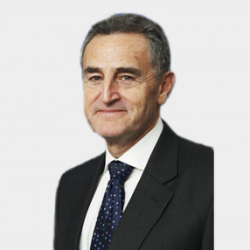Biography
Sir Denis O’Connor was an independent director of the Board of the College of Policing from 2013 through 2017;an adviser on Policing to the Ministry of Defence; and was previosuly a Radzinowicz Fellow at the Institute of Criminology. He was also Her Majesty’s Chief Inspector of Constabulary between 2008-12. Prior to joining the Inspectorate in 2004, he was Chief Constable of Surrey between 2000 and 2004.
He has a Bachelor’s degree in Education from Southampton University and an MSc in Social Policy from the Cranfield Institute of Technology.
Sir Denis began his police career with the Metropolitan Police in 1968, left in 1976 to go to University and re-joined as a graduate entrant in 1974, eventually becoming Assistant Chief Constable in Surrey in 1991. He was later appointed to the role of Deputy Chief Constable of Kent, and then in 1997 took on the position of Assistant Commissioner in London where he led the Metropolitan Police Service development strategy following the Stephen Lawrence Enquiry.
In 1996, Sir Denis was awarded the Queen's Police Medal and later received a CBE in 2002 for services to policing. He received a knighthood in 2010 in the Queen's Birthday Honours.
In 2011, he was awarded a place in George Mason University’s ‘Evidence-Based Policing Hall of Fame’. He received an Honorary Doctorate in Laws from Wolverhampton University in September 2012.
Prior to becoming Vice President of the Association of Chief Police Officers (ACPO) in 2003, he chaired the ACPO Performance Management Business Area and led the piloting of the National Reassurance Policing Programme, the pre-cursor to Neighbourhood Policing.
In 2005, Sir Denis was commissioned by the Home Secretary to review the fitness of the current police force structure, which resulted in the publication of the report ‘Closing the Gap’ suggesting options for change. Other reviews undertaken during his tenure include ‘Intercepting Terrorism,’ a review published in October 2006 on police capabilities for counter terrorism, and ‘Getting Organised,’ a report published in October 2008 on serious and organised crime.
Other significant analysis, commentary and reviews overseen by Sir Denis following significant events that generated public concern include: the issues arising from the death of Baby Peter Connolly; the Lessons to be Learned from Stockwell; a review of the policing of public protests in the context of G20;); the policing of the August 2011 disorders and undercover operations (2012). He initiated studies to identify ‘what works’ in police handling of Anti-Social Behaviour with the assistance of MORI and Cardiff University. His team provided support to the Olympics Programme in testing the Olympic assurance process. In the Inspectorate he introduced Value for Money profiles for all police forces in England and Wales in 2008/9 to assist comparisons to achieve greater efficiency and effectiveness during austerity. This has been followed by a series of studies to track police availability (2010) and the preparedness of police forces and authorities for the austerity spending period (2011,2012); police relationships with the media and other parties (2011).
He has also contributed to the Scarman Inquiry (1981, the Stephen Lawrence Inquiry (1999), and the Leveson Inquiry (2012).

